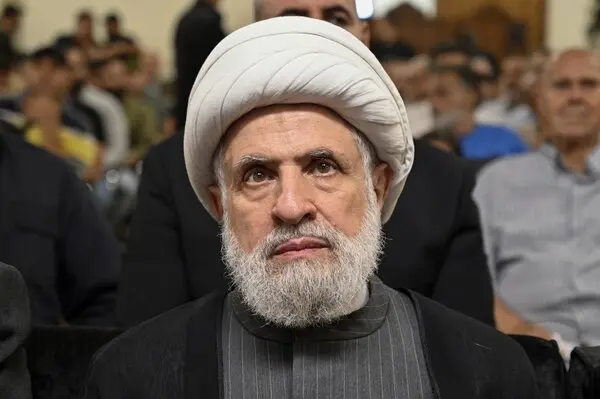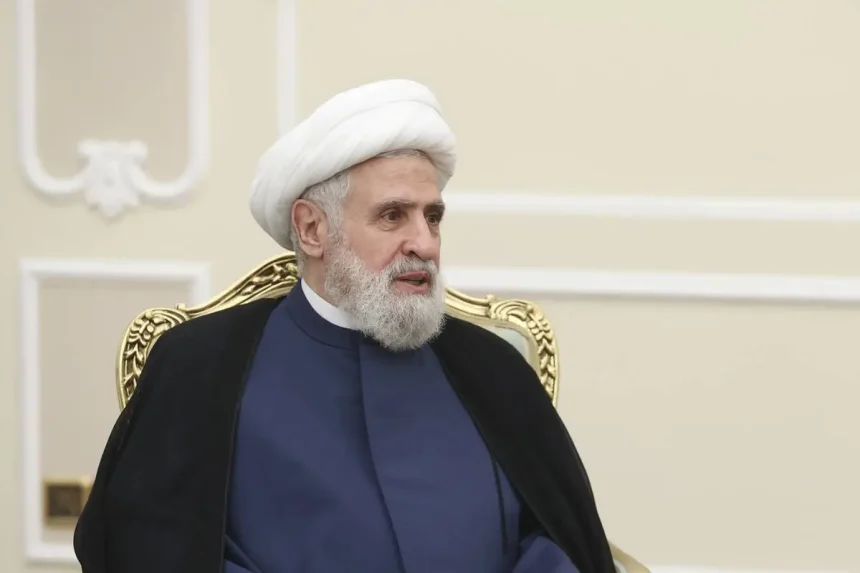Hezbollah’s Leadership Transition: Naim Qassem Steps in After Nasrallah’s Death
In a significant shift within Lebanon’s Hezbollah, the group announced on Tuesday that Naim Qassem has been elected as its new secretary-general. This development follows the death of the former leader, Hassan Nasrallah, in an Israeli airstrike on Beirut’s southern suburbs over a month ago.
Hezbollah’s leadership confirmed Qassem’s appointment through a written statement, emphasizing that the decision aligns with their established protocols for leadership succession.
Naim Qassem, 71, has been a central figure within Hezbollah for decades. He was first appointed as the group’s deputy leader in 1991 by then-secretary general Abbas al-Musawi. Musawi, who played a foundational role in shaping Hezbollah’s strategies and policies, was killed in 1992 by an Israeli helicopter strike.
Following Musawi’s death, Nasrallah rose to leadership, and Qassem continued his service as deputy, establishing himself as one of the organization’s most prominent figures. Known for his steady demeanor and articulate voice, Qassem has consistently represented Hezbollah’s stance on various fronts, both regionally and internationally.
Qassem’s influence extended beyond his official role as he became a leading spokesman for Hezbollah, frequently engaging with foreign media. His appearances often coincided with periods of heightened tensions, as he offered insight into Hezbollah’s perspective on regional conflicts.

This role made him a well-recognized face within and outside Lebanon and helped solidify his reputation as a loyal and steadfast advocate for Hezbollah’s mission and values.
The passing of Hassan Nasrallah, who had led Hezbollah since the early 1990s, marks a pivotal moment for the organization. Nasrallah’s tenure was characterized by his charisma and his strategic approach in navigating the group through complex political landscapes and conflicts, particularly with Israel.
His influence in Lebanon and the broader Middle East was immense, with his speeches drawing large audiences and shaping public opinion across the region. His death on September 27 during an Israeli airstrike has left Hezbollah facing both internal and external challenges, as it navigates a period of transition amidst ongoing regional hostilities.
READ ALSO: Iran Allegedly Building Nuclear Bomb with Intent to Target Israel, Warns Netanyahu
Following Nasrallah’s death, Hezbollah was reportedly evaluating potential successors, with Hashem Safieddine, a senior Hezbollah figure and respected member of its decision-making body, the Shura Council, being a prominent contender.
However, Safieddine was also killed in an Israeli attack roughly a week after Nasrallah’s passing. The loss of both Nasrallah and Safieddine within such a short span has undoubtedly left Hezbollah with an immediate need to stabilize and reorganize its leadership.
Since assuming the role of Hezbollah’s leader, Qassem has made several public addresses. In an October 8 televised speech, he expressed the group’s support for pursuing a ceasefire, underscoring Hezbollah’s commitment to stability within Lebanon. Qassem’s statements seem to reflect a cautious yet determined approach to maintaining Hezbollah’s influence while addressing the growing calls for de-escalation amidst ongoing regional hostilities.
As Hezbollah adapts to this change, the group’s supporters and adversaries alike will be watching Qassem’s actions closely. His leadership will likely shape Hezbollah’s stance on several key issues, from Lebanon’s internal security to its broader geopolitical engagements in the Middle East.

Qassem’s extensive experience and history within the organization provide him with a solid foundation, yet he faces the challenge of filling Nasrallah’s formidable shoes during a period marked by heightened regional tensions and calls for reform within Lebanon.
Naim Qassem’s appointment as Hezbollah’s secretary-general signals both continuity and adaptation for the organization. While his deep-rooted history within Hezbollah provides a sense of stability, the challenges he faces are profound.
From navigating the ongoing hostilities with Israel to managing Hezbollah’s role within Lebanon’s political fabric, Qassem’s leadership will be instrumental in shaping Hezbollah’s future trajectory. As the group undergoes this critical leadership transition, the international community and Hezbollah’s supporters will undoubtedly keep a close eye on how Qassem approaches this next chapter.

